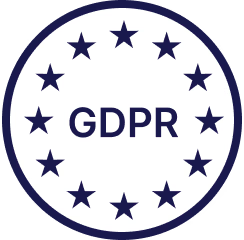FFF
The FFF confirms a third major data breach, exposing personal details of players...
It was not with a bang, but with a silent, digital flicker that the defenses of the French Football Federation (FFF) were breached for the third time. The date was November 20, 2025. In the sterile, climate-controlled server rooms housing the "Hélios" club management software—the very circulatory system of French football—an anomaly registered. A single user account, its credentials likely pilfered in a phishing email or purchased on the dark web from a previous incident, was behaving erratically. It was accessing files it had no business viewing, performing queries at an inhuman pace, and exfiltrating data in encrypted packets that flowed out into the shadowy arteries of the internet like a silent hemorrhage.
This was not a sophisticated, nation-state-level attack. It was a digital burglary, exploiting a known weakness in a structure that had already been broken into twice before.
## **A History of Neglect**
To understand the gravity of this third breach, one must rewind. The first incident in March 2024 was a shockwave. It revealed the FFF's digital infrastructure not as a modern fortress, but as a crumbling medieval castle. The "Hélios" software, the backbone administering everything from a professional club's youth academy to a rural amateur side, was built on aging code. Its security protocols were, in the words of one internal report, _"adequate for the early 2010s."_
Upon inheriting the crisis, President Philippe Diallo privately acknowledged the truth: decades of underinvestment in IT, in which funds were preferentially directed to elite athlete development and glittering stadiums, had left the administrative core vulnerable. A stopgap security patch was applied after the first breach. The second breach, mere months later, proved its futility. It was a clear signal that the entire system needed not a patch, but a heart transplant.
By November 2025, the much-touted multi-year "Digital Sovereignty Plan" was still in its procurement phase. The old system remained, a known target, its vulnerabilities documented and, as it turned out, readily available for exploitation.
## **What Truly Was Lost**
The FFF's communiqué of November 26th was legally precise but emotionally sterile. It spoke of "personal data." But let us give that data a human face.
Imagine **Jean-Luc**, a volunteer coach for an U-15 team in Alsace. The stolen database contains not just his name, but his home address, his personal phone number, and the FFF license number that validates his decades of service to the game. For Jean-Luc, this isn't abstract data; it's his identity within the football community, now stripped bare and offered for sale on a dark web forum.
Now imagine **Sophie**, a young player on Jean-Luc's team. The breach exposed her date and place of birth, her nationality, and her parents' contact information. In the wrong hands, this is a toolkit for identity fraud, for crafting devastatingly personalized phishing emails to her family, or for mapping the social fabric of an entire community.
The data, in aggregate, is a goldmine for malicious actors.
It allows for:
* **Hyper-Targeted Phishing (Spear Phishing):** A text message to Sophie's mother: "*_URGENT: Chère Mme. Durant, votre fille Sophie a subi une blessure à l'entraînement. Cliquez ici pour accéder au dossier médical et signer l'autorisation._*" The message, coming from a sender spoofed to look like the club, and containing accurate personal details, is terrifyingly convincing.
* **Social Engineering:** A call to Jean-Luc: "_Bonjour, c'est Marc from the FFF IT department. Suite à la fuite de données, nous devons réinitialiser votre compte Hélios. Pouvez-vous me donner le code de validation que nous venons de vous envoyer ?_" Having his license number and other details makes the caller impeccably credible.
* **Doxxing and Harassment:** Rival fans or malicious individuals could use the address and contact information of players, coaches, and referees for real-world harassment.
The FFF's reassurance that "passwords and bank details are safe" is a small comfort. The stolen data is the key that unlocks the front door; it's the context that makes all subsequent attacks believable.
## **Vigilance in a Vacuum of Trust**
The immediate response from the FFF was textbook: isolate the compromised account, force a system-wide password reset, engage the National Cybersecurity Agency of France (ANSSI), and file a report with the data protection authority (CNIL). But these actions, while necessary, occur in a vacuum of eroded trust.
The real burden of response falls onto the millions of Jean-Lucs and Sophies across France. They are now thrust into a state of perpetual vigilance. Every email, every SMS, every unknown caller ID becomes a potential threat. The simple joy of receiving a club newsletter is now tinged with suspicion. The relationship between the footballing institution and its members is no longer purely based on passion and administration; it is now also defined by risk and caution.
President Diallo's public admission of "past underinvestment" is a crucial, if belated, piece of context. It frames this not as a one-off accident, but as a symptom of a long-standing cultural problem: the failure to see data as a critical asset worthy of protection. The new multi-year plan is the promised cure, but for those whose data is already in the wild, it feels like a vaccine administered after the disease has taken hold.
This third breach is more than a IT failure; it is a narrative of institutional catch-up in a world where cyber threats evolve at light speed. It tells the story of a beloved sport's administrative body, whose focus on the spectacle on the pitch allowed the foundations off it to decay. The stolen data—names, dates, addresses—is the digital proxy for the entire French football community. Its violation is a profound breach of trust.
The path forward for the FFF is no longer just about winning trophies. It is about demonstrating, through ruthless investment and transparent communication, that it can be a faithful guardian of the community it serves. The success of its "Digital Sovereignty Plan" will determine whether the fourth such narrative ever needs to be written. For the millions involved, the final whistle on this crisis is still a long way off.






